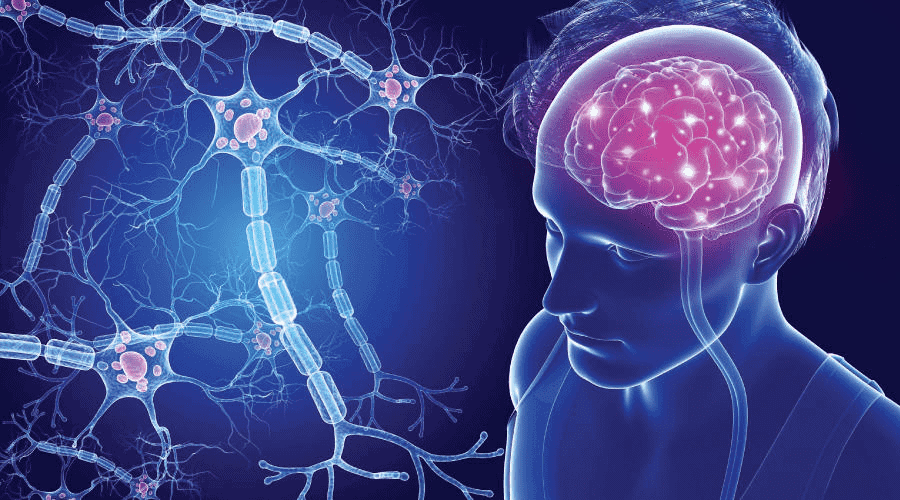
Anishka Ram
(NZRD, MSc. Nutrition and Dietetics)
Life expectancy with people diagnosed with Multiple Sclerosis is 5 to 10 years less than in average healthy individuals, with a mean of 7 years. Following an anti-inflammatory diet and minimizing dairy, meat and fat intake and using supplements might assist with extending the life expectancy.
To fully understand Multiple Sclerosis as a disease, we have tried to describe the condition in more detail in this article.
What is Multiple Sclerosis?
Multiple sclerosis is a chronic autoimmune disease that affects the central nervous system, disrupting the nerve connections and communication between the brain and the spinal cord.
Symptoms can vary from pain and fatigue to vision impairment, chest and bladder infections, swallowing difficulties and issues with coordination. The condition is still incurable, but there are many treatments available such as physiotherapy and medication to slow down the nerve damage.
Over 4000 people in New Zealand have multiple sclerosis (MS) which is why the MS awareness day is important in understanding what multiple sclerosis is and why nutrition support is essential in managing this condition.[1]
Multiple sclerosis means scarring (sclerosis) of multiple areas of the central nervous system which includes the brain.[1] In our brain we have nerves that are coated with myelin sheath.

When multiple sclerosis occurs, it means that the inflammation in the central nervous system has damaged the nerves and the myelin sheath coating.[2] As a result, the body receives disrupted signals from the brain.[1]
Multiple Sclerosis and Dysphagia - Swallowing Difficulties
In one study, one third of people with multiple sclerosis have problems with swallowing food and fluids, which is known as dysphagia[2]. Whereas, in another study less than half of the people with multiple sclerosis experienced dysphagia.[3]
Swallowing difficulty is more common in people with multiple sclerosis than previously thought so it’s best to find the ideal treatment as soon as possible.
In dysphagia it is hard to stop foods from going down the windpipe (trachea). Liquid based foods could cause choking or worse.[2]
There is no specific nutrition therapy for people with multiple sclerosis since there are no well-designed trials and studies on this condition. However, there are nutrition guidelines for people with dysphagia.[4]
A modified diet is recommended for those with dysphagia. This means changing the texture of the food and fluid by turning it into a thicker and less sticky consistency such as a pureed texture.[5]
Also, modified foods have more calories and protein per bite compared to regular meals.
Weight Loss and Malnutrition

Not only is there weight loss with multiple sclerosis, but muscle mass can quickly drop as well.[5]
With some people, there is a small amount of weight loss but the muscle mass drops significantly.
Malnutrition must be tackled as soon as it is diagnosed since it can worsen the progression of multiple sclerosis as it lowers muscle strength and can make it harder to perform everyday tasks.[5]
Multiple Sclerosis (Anti-inflammatory) Diet
Although there is little evidence for a specific multiple sclerosis diet, there is enough information to suggest that an anti-inflammatory diet could show benefits and is the safest nutrition advice at the moment.[7]
Diet high in saturated fats such as full cream dairy products, meats with the skin on (remove skin instead) and fast foods will increase the risk of inflammation in the body.[7]
RELATED — Types of Fats: Healthy and Unhealthy Fats
Unsaturated fats, also known as good fats, have protective factors which can reduce inflammation and can be found in olive oil, tuna, salmon, sardines, nuts and seeds.[7]
Because multiple sclerosis is closely linked to populations where there is little sunlight like the Northern and Southern Hemispheres, vitamin D deficiency has been studied and it shows that increasing vitamin D in the diet can reduce the risk and progression of multiple sclerosis.[7]
RELATED — Vitamin D: The sunshine hormone for stronger bones
Probiotics are also good options to add into the diet since probiotics can balance the gut microbes and reduce inflammation in the intestines.[7]
RELATED: You can read more about the effects of diet on our brain in our 3-part special:
Part I — Diet and the Brain: Fats
Part II — Diet and the Brain: Proteins
Part III — Diet and the Brain: Our brain on sugar
References
(1) Multiple Sclerosis New Zealand. (2021). What is MS?
(2) Burgos, R., Bretón, I., Cereda, E., Desport, J. C., Dziewas, R., Genton, L., … & Bischoff, S. C. (2018). ESPEN guideline clinical nutrition in neurology. Clinical Nutrition, 37(1), 354-396.
(3) Aghaz, A., Alidad, A., Hemmati, E., Jadidi, H., & Ghelichi, L. (2018). Prevalence of dysphagia in multiple sclerosis and its related factors: Systematic review and meta-analysis. Iranian journal of neurology, 17(4), 180.
(4) Mische, L. J., & Mowry, E. M. (2018). The evidence for dietary interventions and nutritional supplements as treatment options in multiple sclerosis: a review. Current treatment options in neurology, 20(4), 1-11.
(5) D’Amico, E., Zanghi, A., Serra, A., Murabito, P., Zappia, M., Patti, F., & Cocuzza, S. (2019). Management of dysphagia in multiple sclerosis: current best practice. Expert review of gastroenterology & hepatology, 13(1), 47-54.
(6) Printza, A., Triaridis, S., Kalaitzi, M., Nikolaidis, I., Bakirtzis, C., Constantinidis, J., & Grigoriadis, N. (2019). Dysphagia prevalence, attitudes, and related quality of life in patients with multiple sclerosis. Dysphagia, 1-8.
(7) Labuschagne, I. L., & Blaauw, R. (2018). An anti-inflammatory approach to the dietary management of multiple sclerosis: a condensed review. South African Journal of Clinical Nutrition, 31(3), 67-73.






